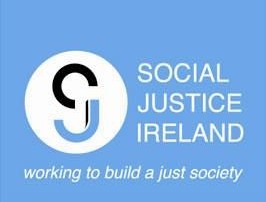In recent times much of our media coverage has been taken up with reports on anti-immigrant protests that are being manipulated and promoted by a growing and more vocal right wing. Below is a is a piece written in the Social Justice Ireland Members Bulletin, by its CEO Mr John McGeady. It gives a more balanced and contextualized picture of the immigration we are currently experiencing.
In April, Social Justice Ireland published its annual socio-economic review, Social Justice Matters: 2024 guide to a fairer Irish society. This year we focus on the need to manage change to deliver fair outcomes in a time of transition.
At the 2023 National Economic Dialogue, the Department of Finance highlighted four key transitions with which Government must contend over the medium and long term, known as the four Ds: decarbonisation of our economy, digitalisation, deglobalisation, and demographic change. Change is inevitable, it is the responsibility of Government to manage that change. At the same time, while much is changing, many of the problems facing our society are longstanding: inequality, poverty, and under-investment in our social infrastructure. If these existing problems, many of which are already at crisis level, are left unresolved, they risk exacerbating the negative consequences of the social, economic, technological and environmental transitions underway.
Immigration obviously plays a role in this. However, while there has been a sharp focus on immigration since the outbreak of war in Ukraine two years ago, the reality is immigration is, and has always been, a fact of life in Ireland. Despite calls that Ireland is full, the number of people who moved to Ireland in 2023 was still fewer than in 2007: a total of 151,100 people in 2007 compared to 141,600 people in 2023. The operation on Wednesday morning to clear tents from Dublin’s Mount Street and move 285 people to other locations, was just that, an operation to move people. It does not solve the problem, it simply moves it somewhere less visible – out of sight and out of mind.
The needs of immigrants coming to fill jobs in high-tech, high-paid industries will be different to those seeking refuge from wars and persecution. However, there are some areas of commonality: all will need accommodation; healthcare; public transport; many will need childcare and education. Ireland is not full. Ireland is a wealthy country, with the second highest GDP per capita in Purchasing Power Standards in the EU. We have enough resources to meet the needs of all of inhabitants. Instead, Ireland is failing to meet its human rights obligations to thousands of people living here.
If this is a crisis, it is not one of too many people coming to Ireland, it is a crisis of housing, infrastructure and services. Immigration has not caused these problems, it has simply revealed them. These problems are a result of Government policy. Years of under-investment in housing, infrastructure and services following the financial crash of 2008 has led us a position today where homelessness is at record levels and poverty and inequality remain stubbornly high, with 10.6 per cent of the population living below the poverty line. If we had invested in housing, Government would not now be in a position where it has resorted to accommodating people in tents. In a nation as wealthy as Ireland, this is obscene.
Two years ago Social Justice Ireland raised concerns about the danger of anti-immigrant sentiment growing if Government did not address the problems of inadequate service-provision and housing. We now see an increasing level of hostility towards migrants and anti-immigrant protests, and a string of arson attacks on properties proposed to accommodate people seeking international protection.
We need a fair and effective immigration system to manage and support people coming to our shores, and this system must put human rights front and centre. It is important to remember, whatever the outcome of their applications and no matter how they arrived here, asylum seekers are human beings and their dignity must be respected. The dignity of the human person can never be treated as optional, no matter how limited our resources – if anything, it is in times of crisis that we must do all the more to uphold human dignity.
A transformation in how we live is coming one way or the other: the question is whether public policy will be used to shape our future in a way that is humane, ecologically sound, and socially just. In order to manage the major changes we face, together with longstanding challenges, we need a new social contract and a renewed social dialogue to support that social contract. The good functioning of such a contract is essential to maintain social cohesion and faith in our democracy, as well as to reduce our exposure to the negative consequences of the multiple transitions we face. Effective social dialogue is essential in order to manage change effectively and appropriately. It will allow us to get out in front of problems by identifying them at the earliest stages, facilitate communities and sectors to come to terms with the coming change, and build consensus about how best to manage that change in a way that allows communities to have a say in policies that affect them. Social Justice Ireland will continue to advocate evidence-driven policies for the renewal of the social contract based on a framework of a vibrant economy, decent infrastructure and services, just taxation, good governance and sustainability.
John McGeady CEO
Editor’s Note: The immigration figures for 2023 given above i.e. 141,600 people breaks down as follows: 29,600 were returning Irish citizens, 26,100 were other EU citizens, and 4,800 were UK citizens. The remaining 81,100 immigrants were citizens of other countries including almost 42,000 Ukrainians.

